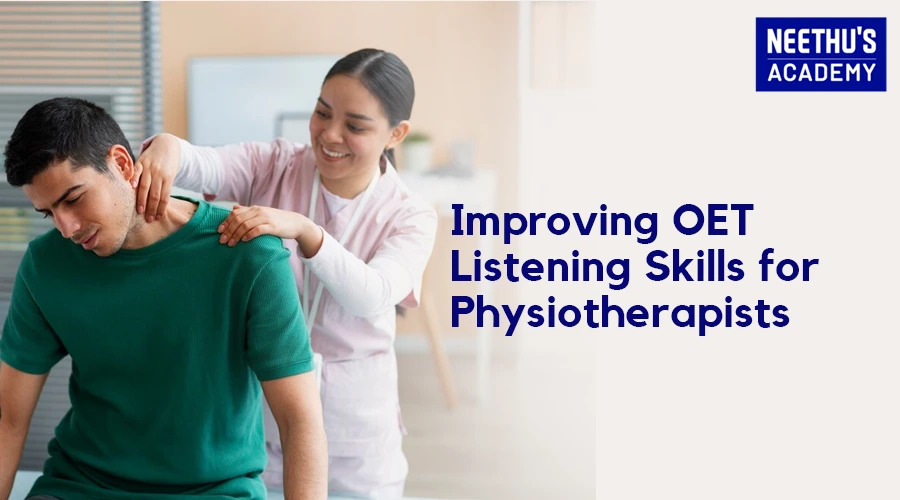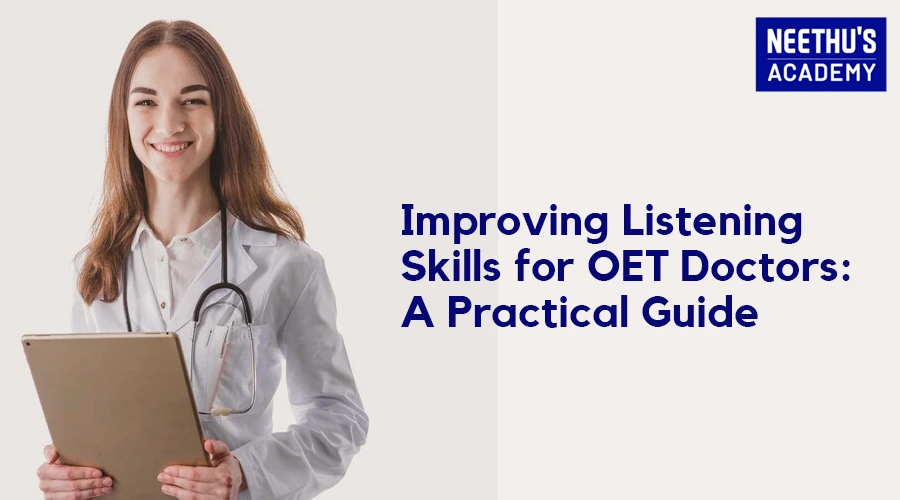Head to the UK with OET
While OET (Occupational English Test) is accepted by various healthcare regulatory bodies in the United Kingdom, such as the Nursing and Midwifery Council and the General Medical Council, as proof of English language proficiency for healthcare professionals, it’s important to clarify the immigration requirements for working in the UK.
OET score alone is not sufficient to get you to the UK if you are seeking to work there as a healthcare professional. To work in the UK, you typically need to meet both professional registration requirements with the relevant healthcare regulatory body and immigration requirements set by the UK Home Office. These requirements may include:
i. Professional Registration:
You will need to meet the professional registration requirements of the specific healthcare profession you intend to practice (e.g., nursing, medicine, etc.). This often involves submitting qualifications, undergoing assessments, and demonstrating your competence in addition to proving your English language proficiency.
ii. Visa Requirements:
Depending on your nationality and the nature of your job offer, you may need to apply for a Tier 2 (General) visa or another type of work visa. The Tier 2 (General) visa requires you to meet certain criteria, including sponsorship from a licensed employer, a valid Certificate of Sponsorship, and fulfilling minimum salary requirements.
iii. English Language Proficiency:
OET or another recognized English language test may be required to demonstrate your English language proficiency. However, the specific English language test and score requirements may vary depending on your visa category.
iv. Immigration Rules:
UK immigration rules are subject to change, so it’s essential to check the most up-to-date requirements on the official UK government website or consult with an immigration advisor to ensure you meet all the necessary criteria.
Certainly, the Occupational English Test (OET) is a specialized English language proficiency test designed for healthcare professionals seeking to practice in countries like the United Kingdom, Australia, New Zealand, Singapore, and others. Here are seven reasons why OET is considered one of the best tests for healthcare professionals aiming to work in the United Kingdom:
Relevance to Healthcare: OET is tailored to the healthcare industry, which means that it assesses the language skills required for effective communication in a healthcare setting. This makes it highly relevant to the specific needs of healthcare professionals.
Realistic Scenarios: The test simulates real-life healthcare scenarios, such as patient consultations, which helps candidates demonstrate their ability to communicate effectively with patients and colleagues.
Global Recognition: OET is recognised and accepted by healthcare regulatory bodies, employers, and institutions in several English-speaking countries, including the UK. This recognition makes it a valuable credential for healthcare professionals worldwide.
Specific Modules: OET offers separate modules for different healthcare professions, such as medicine, nursing, dentistry, pharmacy, and physiotherapy. This ensures that the test content is tailored to the specific language requirements of each profession.
Quality of Care: OET assesses not only language proficiency but also the ability to provide quality healthcare by evaluating communication skills. This is crucial for ensuring patient safety and quality of care.
Cultural Sensitivity: OET includes content that assesses candidates’ cultural sensitivity and awareness, which is essential for effective communication with patients from diverse backgrounds.
Updated Content: OET is regularly reviewed and updated to reflect the evolving needs and requirements of the healthcare industry. This ensures that candidates are tested on the most relevant language skills.
The Occupational English Test (OET) is an English language proficiency test specifically designed for healthcare professionals. It assesses the language skills of healthcare practitioners who are seeking to work in English-speaking countries, including the United Kingdom. Look at the significance of good OET score for UK nurses in 2023:
- GMC Registration: The General Medical Council (GMC) in the UK requires international medical professionals, including doctors, to demonstrate their English language proficiency as part of the registration process. A good OET score is accepted as proof of English proficiency, which is a crucial step for healthcare professionals who wish to practice in the UK.
- Nursing and Midwifery Council (NMC) Registration: Similarly, nurses and midwives who want to work in the UK need to register with the Nursing and Midwifery Council. The NMC recognizes OET scores as evidence of English language competence.
- Tier 2 Visa: For healthcare professionals from non-English speaking countries, obtaining a Tier 2 (General) Visa is often a requirement to work in the UK. To obtain this visa, applicants must prove their English proficiency and a good OET score can fulfil this requirement.
- FY2 Standalone Training: Healthcare professionals who are eligible for FY2 Standalone Training in the UK can benefit from a good OET score. This training is a vital step for doctors looking to progress in their medical careers in the UK.
- UKFPO Foundation Training: If eligible, OET scores can play a significant role in securing a place in the UK Foundation Programme for medical graduates, which is a crucial step in a doctor’s career progression.
- Training Applications for the NHS: Many healthcare professionals aspire to work for the National Health Service (NHS) in the UK. OET scores are often required or preferred when applying for training positions within the NHS.
In summary, a good OET score is essential for healthcare professionals aiming to work in the United Kingdom. It is widely accepted by various regulatory bodies and institutions in the UK as a reliable measure of English language proficiency, which is critical for both professional registration and career advancement in the healthcare sector.
While OET may not necessarily be the “best” test for everyone, it does have several advantages that make OET for nurses in the UK, a popular choice for healthcare professionals to work in the UK:
- Accepted by UK Regulatory Bodies: OET is accepted by prestigious institutions like the Nursing and Midwifery Council, the General Medical Council, and various Royal Colleges in the UK. This means that you do not need to take a separate English language test for your Tier 2 (General) visa application; OET alone suffices.
- Tailored for Healthcare Professionals: OET is specifically designed for healthcare professionals, whether you’re a doctor or a nurse. It assesses your English proficiency in a healthcare context, which is highly relevant to your future practice in the UK.
- Accepted Across Healthcare Professions: OET is not limited to doctors and nurses; it’s also accepted by other healthcare professions like dentistry, speech pathology, pharmacy, physiotherapy, and occupational therapy. This versatility makes it a convenient choice for a wide range of healthcare professionals.
- Boosts Confidence: OET’s focus on healthcare-related tasks and vocabulary can boost the confidence of test-takers, as they are familiar with the content and context, unlike more general English tests.
- Prepares You for Work: Preparing for OET means you’re not just studying to pass an exam; you’re preparing to work effectively in an English-speaking healthcare environment. This practical focus can enhance your readiness for your career in the UK.
- Preferred by UK Recruiters and Employers: Many NHS Trusts, recruiters, and employers in the UK prefer OET as an indicator of English proficiency for healthcare roles, making it a valuable credential for job seekers.
- Easier Content: OET’s questions primarily revolve around healthcare topics, making it more approachable for candidates with a healthcare background. This focused content can make OET seem easier compared to more general English tests.
- High-Quality Assessment: OET is developed by Cambridge Boxhill Language Assessment, a collaboration between Cambridge English Language Assessment and Box Hill Institute. It undergoes rigorous development and validation processes to ensure its quality and fairness.
However, it’s essential to note that the choice of which English language proficiency test to take depends on individual circumstances and career goals. Other tests like the International English Language Testing System (IELTS) and the Pearson Test of English (PTE) are also accepted for immigration and professional registration purposes in the UK. Therefore, candidates should carefully research the requirements of their specific profession and regulatory body before deciding which test is best for them.
Ultimately, while OET is a popular and relevant choice for healthcare professionals aiming to work in the UK, the “best” test may vary depending on individual preferences, familiarity with the test format, and specific requirements of the intended profession and regulatory body.





